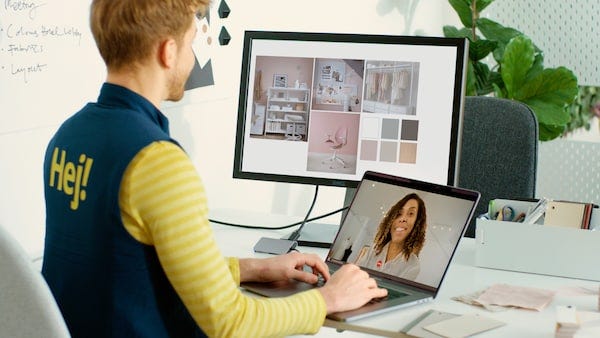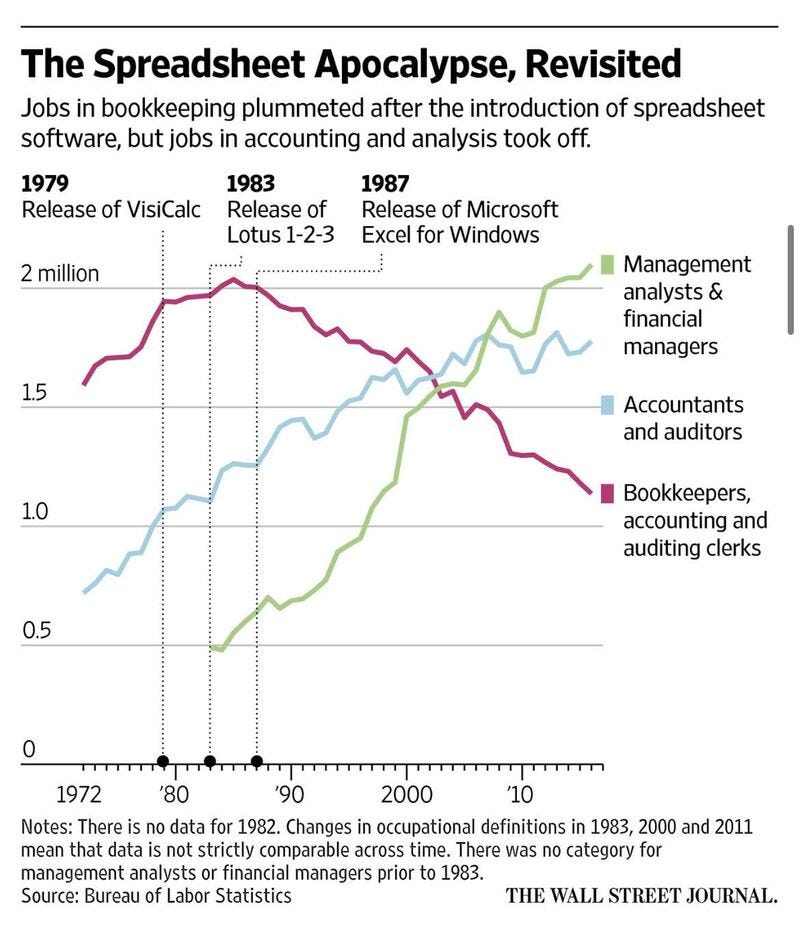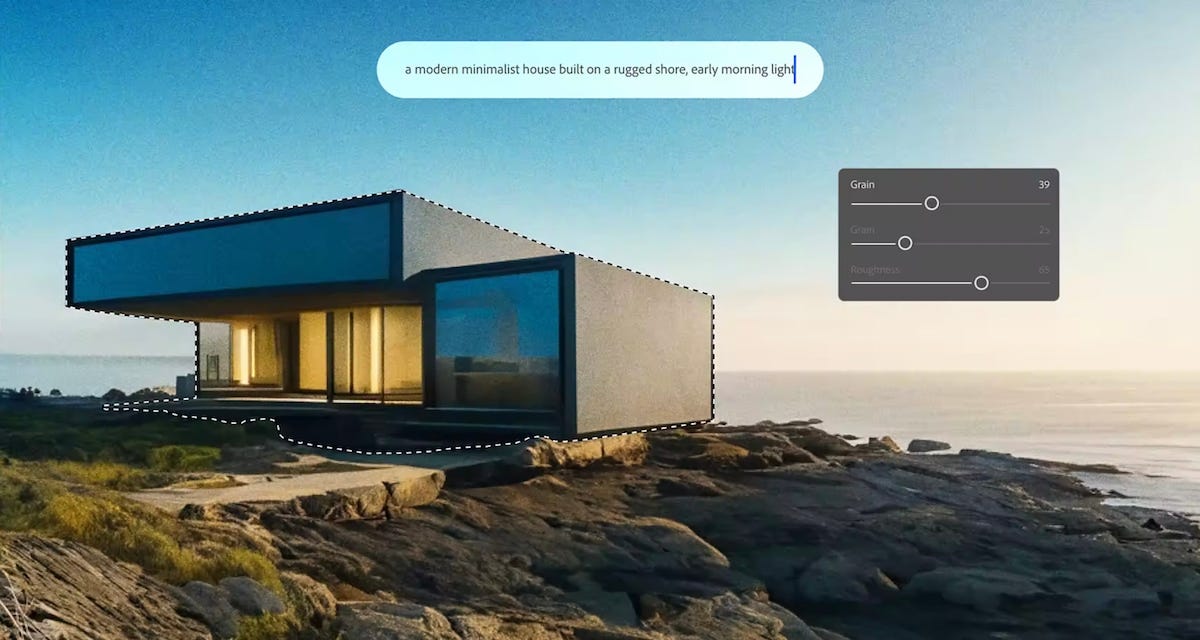AI, the enterprise, and the future of work
Adobe's copyright indemnity; IKEA's retraining program; and more...
Another week, another 1,238,843 AI tools and startups released. And while its fun to play around with many of these tools (I enjoyed turning myself into a Pixar character), most of you are reading this because you want to go a little deeper and understand what these tools mean – for people and society, and for you and the companies you work for. How will they change the environment in which you operate? What new opportunities will they create?
This week’s edition focuses on a couple of more corporate AI news stories. One of the uniquely exciting things about most generative AI is how democratic it is – within minutes you can be using some of the most cutting edge computing tools ever created.
Yet despite this, the reality is that despite being the fastest ever service to reach 100m users, only 58% of Americans have heard of ChatGPT and only 14% have tried it.
Many people will only use AI regularly when it gets integrated into the tools they already use, like Microsoft Office and Google Workspace. Indeed, for all your experiments with AI, how many readers would say that their daily tasks and role have fundamentally changed because of AI? I’d bet not as many as the hype around AI might suggest.
We know AI is coming to the enterprise. The stories below explore what that might mean.
IKEA turns call centre operators into remote interior designers
Billie, IKEA‘s AI-powered customer service chatbot (named after the iconic bookcase), has handled 47% of the brand’s call centre queries over the past 2 years. Yet rather than eliminating humans from its operations, IKEA says it has trained 8,500 of its call centre operators as interior design advisors. As Reuters reports, “in the UK, customers pay £25 (approx. $30) for a 45-60 minute interior design advice video call and suggested product list, or £125 ($160) for three workspace design consultations, a floorplan and 3D visuals.
💡 The broader insight here?
AI is coming for our jobs! IBM said so! Well, let’s hope it takes the “bullshit jobs” first. Indeed, the optimistic view is that technological revolutions do destroy jobs, but they’re not jobs too many of us wish we were doing. Mechanisation took (most of) the back-breaking ones in the fields; digitisation took many of the unskilled, monotonous clerical jobs too – as shown by the chart below.
Heart-warming stories like this play to that narrative – technology will liberate humans to focus on higher value tasks! I don’t doubt that IKEA’s call centre operators would rather be discussing whether a customer would prefer the velvet or the leather finish on their prospective sofa to answering more functional questions about delivery dates and missing screws. But let’s not pretend that these jobs are bulletproof either. It’s easy to imagine AI interior designers, especially at the lower end where IKEA operates, being better (and far cheaper!) than human equivalents.
So is this just a short-term moment before humans hand over to the machines? I doubt it. Full, end-to-end automation is hard. The more likely outcome is IKEA will want a person to at least quickly review a model’s output before sharing it with a customer. Like most knowledge workers, interior designers will work with their AI copilots.
But let’s also kill the idea that ‘prompt engineer’ is going to be the job of the future. Text input has its use cases, but there will be huge opportunities to replace the current chatbot UX with something faster and more intuitive. Instead, ‘script reader’ will become a common part of customer-facing roles, where you will explain to potential customers what your AI copilot has prepared.
Is this just a new workplace dystopia of even-more-bullshit jobs? Possibly. Or you could view it like the craft beer industry. Yes, you can get a ‘perfect’ pint from Heineken. But people often want the variance and story that craft brewers offer. Human service will be scarce, and therefore valuable.
Adobe to Sell Generative AI Subscription With Copyright Assurance
Adobe announced last week that Firefly, its AI image generator would be integrated into its Adobe Express product plans, used by its enterprise customers. No surprise there – Microsoft, Google, Zoom, Notion and anyone with a digital product is rushing to add AI.
What made the announcement especially interesting however was that the plans also indemnify these enterprise customers against any copyright claims relating to images and content generated by the tools. Adobe also said that its customers would be able to customise the models with their own logos and products, so that "when employees are creating content, it is literally within their brand guidelines.
💡 The broader insight here?
Bringing generative AI into the enterprise isn’t as easy as getting ChatGPT to spit you out a AI-based limerick. Big companies worry about risk. They worry about their IP. And they worry about consistency. Ironically Google has warned its staff about the corporate risks of using chat bots, including its own, Bard.
So this move from Adobe is just the first in many adaptations that you can expect from the big AI players to help get the world's biggest (and biggest spending!) corporates comfortable with deploying these tools across hundreds of thousands of employees.
Also, expect Microsoft and Google to be watching this move closely. Given the ubiquity of AI-powered white collar work, now that Adobe have set this precedent, I wouldn’t be surprised to see a similar indemnity rolled out to their office suites. And if either one moves, then the other has to follow. And then what about other AI products aimed at corporates?
It’s almost as though this is how trends start… ;)
Not done? 5 more provocations…
McKinsey report – The economic potential of generative AI: The next productivity frontier. Given we typically underestimate the 10y impact of technology, read this while asking ”what if they are 10x wrong here? What if they are 100x wrong?”
Accenture announces jaw-dropping $3 billion investment in AI. Is it jaw-dropping when this is undoubtedly the biggest consulting opportunity of a generation?
Sir Paul McCartney says artificial intelligence has enabled a 'final' Beatles song. The world will divide into two – those who embrace AI, and those who reject it. Neither will be universally right.
GPT-4-generated pitches are 3x more likely to secure funding than human ones. Bombastic headline from a small and hypothetical study, but the question it should prompt (!) you to ask is, “What will AI be better at you at? How will you respond?”
Do Not Pay’s Consumer Rights Phone Assistant. This Twitter demo shows a bot calling the IRS, navigating the menu, and transferring the call when it reaches a call center operator. More automation please :)
What Is The Future Normal For Your Business?
My new book, The Future Normal: How We Will Live, Work & Thrive In The Next Decade, explores 30 trends, from continuous glucose monitoring to job sharing.
I also give inspiring, actionable presentations that help your team spot and seize emerging opportunities. Clients like them:
“Henry's approach was radically simple but highly practical - instead of being overwhelmed by the pace of change, you leave with a clear way to identify and seize the opportunities AI will present in the months ahead.”
Get in touch if you'd like to discuss an upcoming event or project.
Or, sit back and enjoy the keynote that myself & Rohit Bhargava gave at SXSW to launch the book:
Thanks for reading,





Really interesting re: Adobe and keeping people within brand guidelines would actually be really useful.
That phone assistant sounds amazing though. I want that.